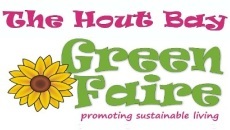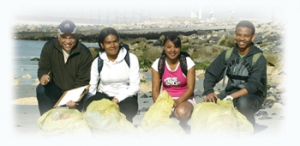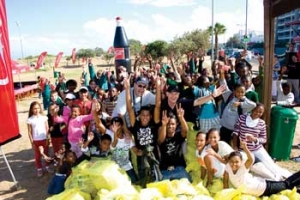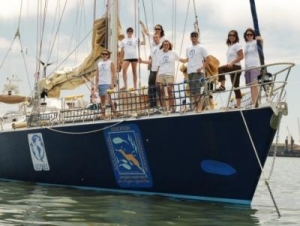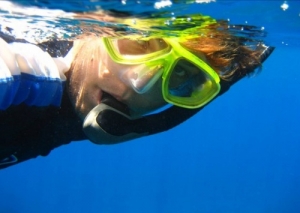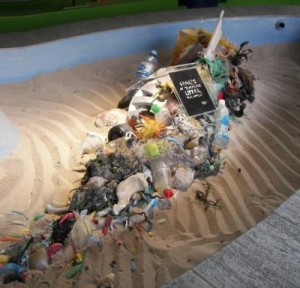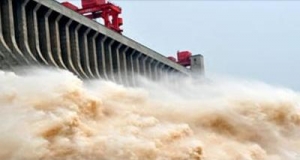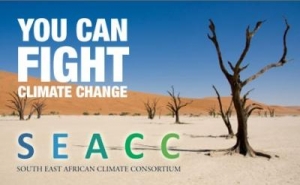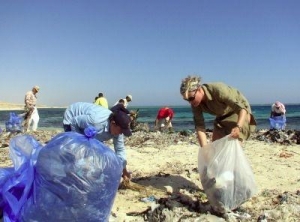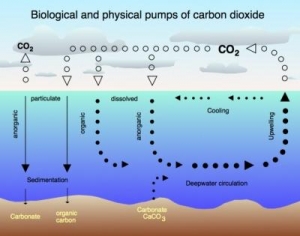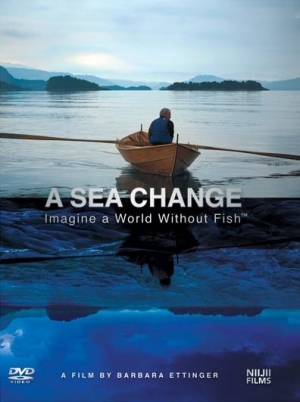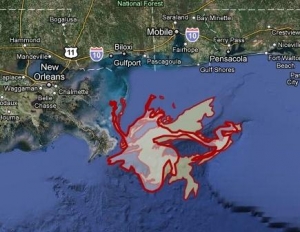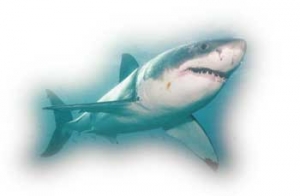Children from various schools around the Cape Peninsula demonstrated their global commitment to sustainable packaging, water stewardship and ocean conservation when they gathered to pick up litter at Strandfontein Beach on Saturday, 12 September 2009. It was part of the 24th annual International Coastal Clean Up (ICC) which takes place globally on 19 September.
In 2004 Sir Robert Swan lead a team to the Antarctic, supported by Coca-Cola, where over 1000 tons of waste was collected from the icy landscape. Five years later, Peninsula Beverages, the Bottler of the Coca-Cola products in the Western Cape, continues to actively support projects that help clean up our planet. PenBev have partnered with the Environmental Action Group and put their efforts behind the Our School Cares Programme, an environmental clean up programme where school children are motivated and rewarded for cleaning up their own schools and communities.
My mind was racing back to that first plastic sample we found in the ocean. Clear navy blue water filled with small coloured pieces of plastic. I stood in line at the supermarket, bursting with excitement because I had finally remembered to bring along my own shopping bag.
An exciting research initiative is underway at the University of Cape Town. The research is running under the brand of Aqua d€™UCT, which seeks to enhance water research by promoting integration and interdisciplinary study. The study is being driven my MSc candidate Raymond Siebrits from the Department of Environmental and Geographical Science as part of his thesis.
While you are enjoying a yoghurt snack from a plastic tub at home, there are a group of people embarking on an arduous cruise on our oceans to monitor how plasticly polluted it is.
Plastic bottle caps are the most collected items at beach clean-ups throughout the year, with increased food wrappers, plastic cutlery and drinking straws the other big monsters we need to fight.
With floods causing havoc in several South African provinces earlier this year, it may be hard to believe that the looming water crisis that was debated in Parliament in 2008 remains an issue. Engineering Council of SA vice-president Thoko Majozi warns: 'the maximum consumption that SA€™s water resources can sustain will be reached in about five years€.
Millions of people living along the coast and elsewhere in rural Africa are dependent upon natural resources from which they harvest unsustainably. Some coastal communities are extremely vulnerable to the potential negative effects of climate change.
Milnerton beach is where you want to be with your kids and others from 11 Western Cape schools on the world€™s largest single-day volunteer effort to eradicate litter and debris from beaches, inland waterways and oceans.
South Africans of all ages and backgrounds are encouraged to do their share to keep our country beautiful during Clean Up South Africa week which will take place from the 13th to the 18th of September 2010.
Fertilizing the oceans to boost the growth of tiny plants that soak up greenhouse gases is unlikely to work as a way to slow climate change, a U.N.-backed study showed on Monday.
The sensitive shells of Pteropods in the oceans are dissolving as they absorb high levels of carbon from the atmosphere and become more acidic. These tiny snail-like, delicate creatures with flapping €˜wings€™ are affectionately called €˜sea angels€™ and live in planktonic form in the oceans.
It all began began on April 20th when the Deepwater Horizon oil rig exploded, caught fire, then sank in the Gulf of Mexico off Venice, Louisiana, leaving 11 crew members presumed dead.
2009 is the International Year of the Shark. The Minister of Environmental Affairs is advocating Eco Tourism marketing to be expanded to THE BIG 7, including the Shark and Whale.
'The maximum potential from the world's oceans ... has probably been reached.€ So reads the FAO World Fisheries Report for 2008. 76% of the world's ocean fish stocks, including South African line fish, are exploited at or above sustainable levels.






